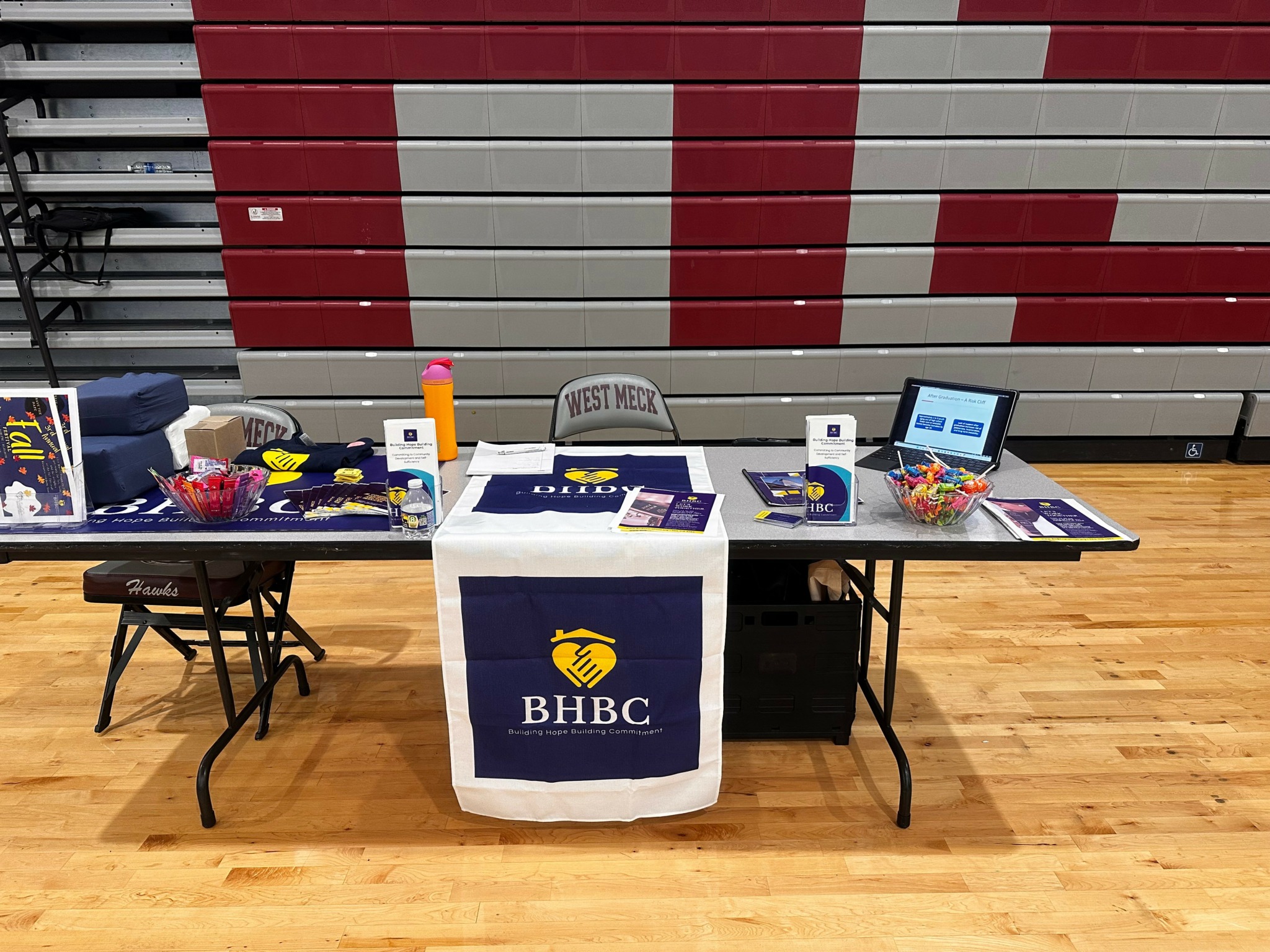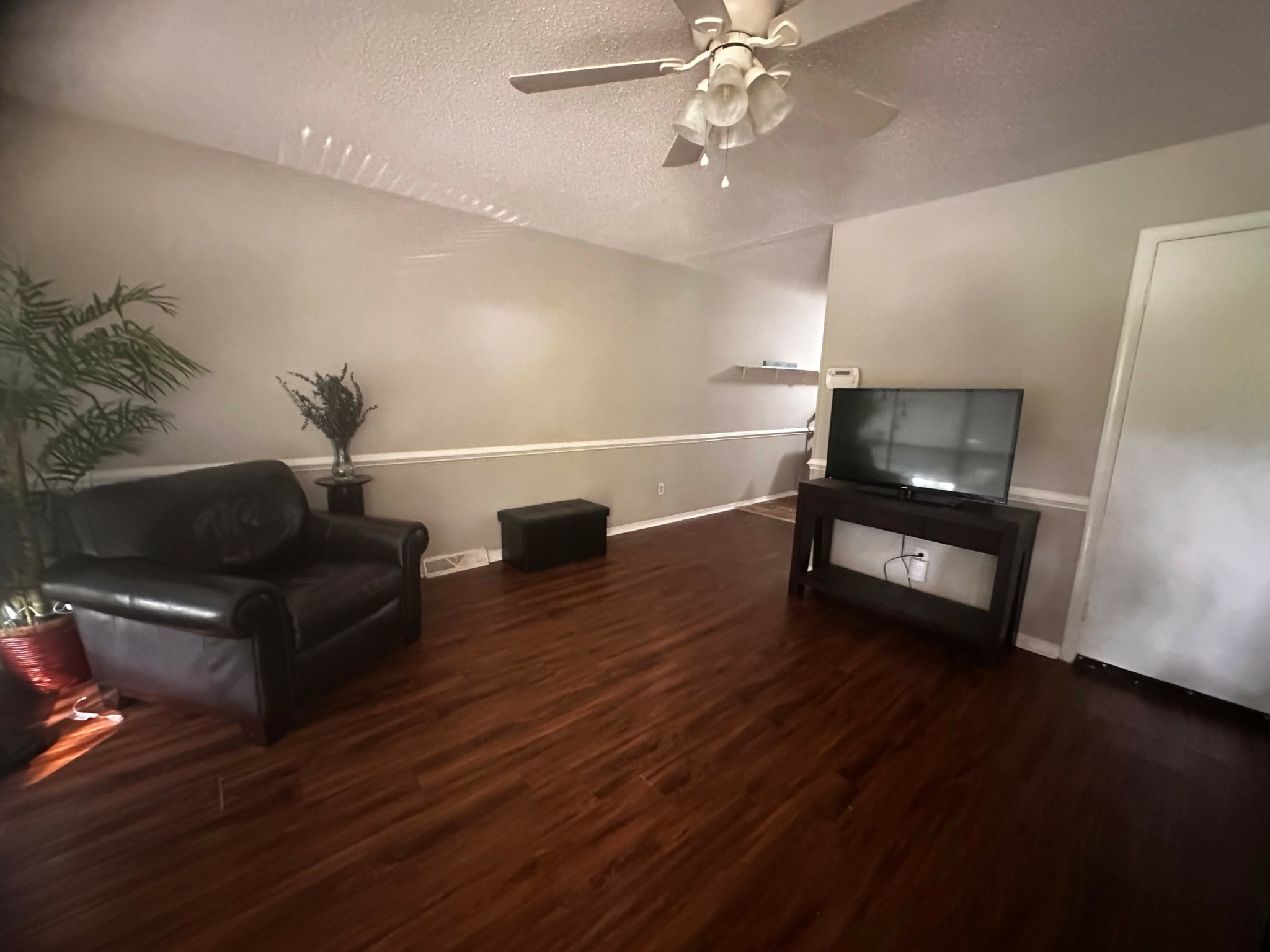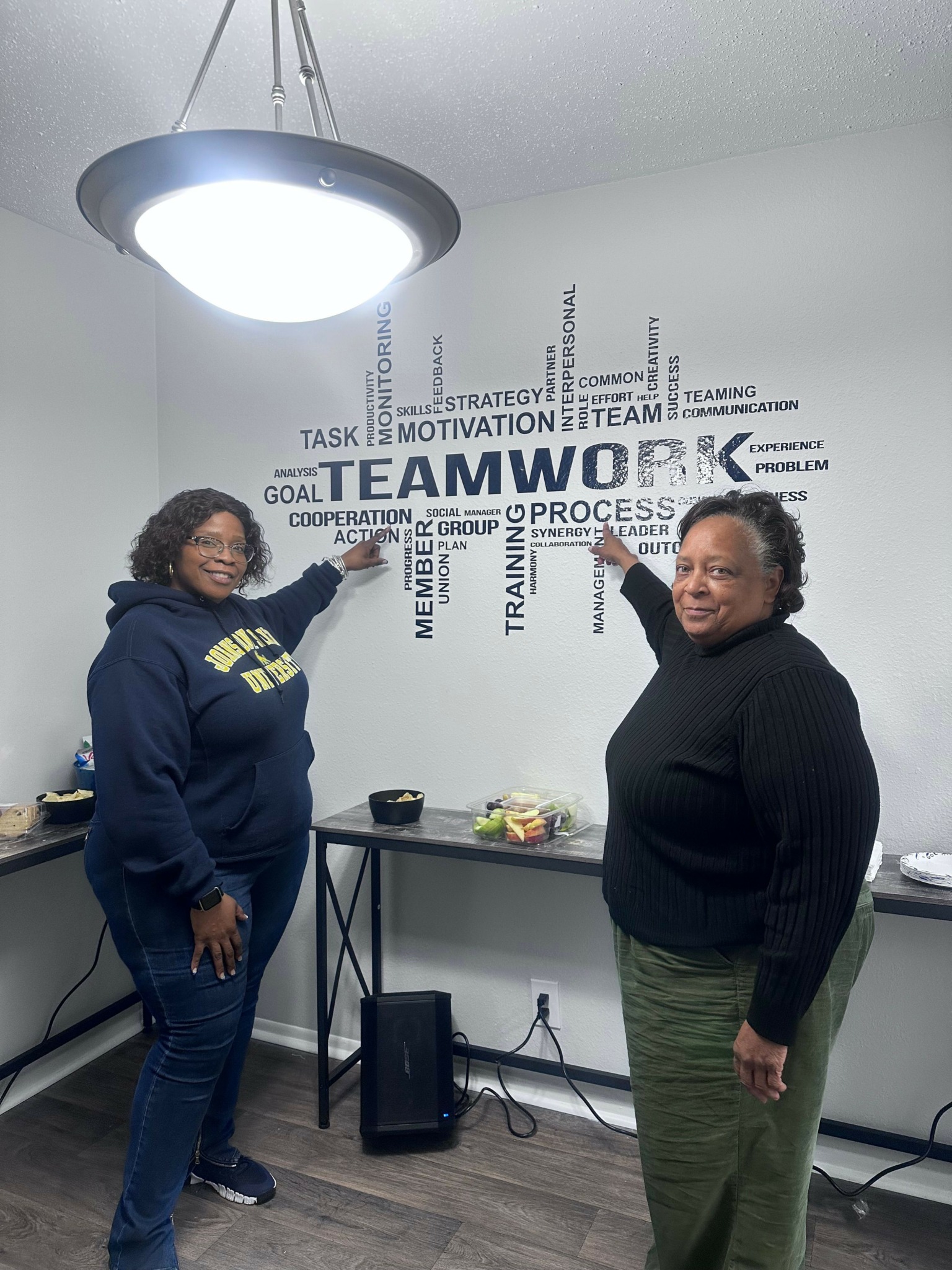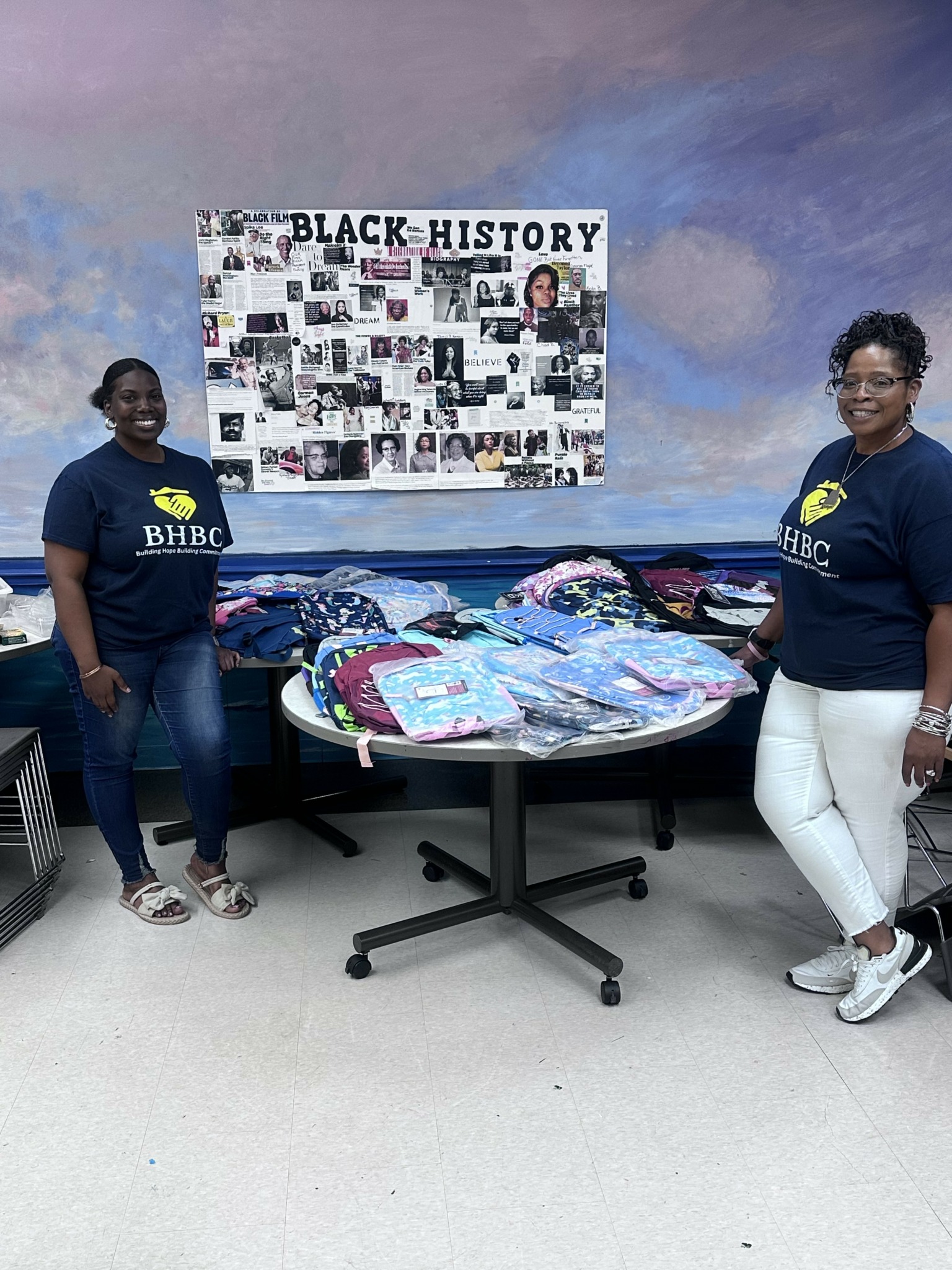We caught up with the brilliant and insightful Vickie Craighead-Davis a few weeks ago and have shared our conversation below.
Vickie, thanks for taking the time to share your stories with us today How did you come up with the idea for your business?
The idea for Building Hope Building Commitment (BHBC) wasn’t born in a boardroom—it was born out of exhaustion, desperation, and a deep-rooted sense of injustice that kept me awake at night.
I’ve spent years working in housing—navigating systems that were overburdened, underfunded, and painfully transactional. I watched people get housed only to be evicted six months later because they didn’t have what they really needed: commitment. Not from themselves—many of them had all the motivation in the world—but from the systems around them. From landlords. From service providers. From faith communities. From society.
The final push came during a particularly hard season. I had just watched another client spiral back into homelessness after a temporary housing program ended. No aftercare. No soft landing. Just “you’re on your own now.” That same week, I was sitting in a pew at a church that was nearly empty during the weekday—and it hit me. These buildings could be homes. These congregations could be circles of support. And this work could be different—must be different.
I founded BHBC in 2020 with no startup funding—just a fire in my chest and an unshakeable belief that if we did this our way, with real community accountability and long-term retention as the north star, we could change lives. And I don’t mean that as a cliché. I mean actually reduce the churn, actually prevent homelessness—not just respond to it over and over again.
What made BHBC different was simple: we wouldn’t just place people in housing—we’d walk with them until they could sustain it. We’d partner with churches, landlords, and case managers to provide wraparound care, with retention as our main metric of success—not just placement. Every intake form, every MOU, every dollar raised was designed to support the long game.
And yes—we were solving a problem most people didn’t want to touch: the messy, costly, human part of housing insecurity. The trauma, the reentry challenges, the economic exclusion. We built programming that could flex with people’s lives, not force them into compliance-only systems.
I knew it would work because we started seeing the numbers early on. People who had been chronically unhoused for years were still housed twelve months later—and more than that, they were thriving. Getting jobs. Reuniting with family. Becoming community leaders. It was working because it was human-centered, rooted in accountability, and built from the ground up with the people we served.
Today, BHBC is a collaborative force in Charlotte—we’ve supported hundreds through our housing placement, digital learning programs, eviction prevention, and faith-based partnerships. I’ve invested my own money, written the MOUs myself, and sat across from clients in crisis more times than I can count. And still—I wouldn’t trade this journey for anything.
Because we aren’t just building homes. We’re building hope. And we’re building commitment. That’s our name. That’s our promise. And that’s the legacy we’re determined to leave behind.

As always, we appreciate you sharing your insights and we’ve got a few more questions for you, but before we get to all of that can you take a minute to introduce yourself and give our readers some of your back background and context?
My name is Vickie Craighead-Davis, and I’m the Founder and Executive Director of Building Hope Building Commitment (BHBC)—a nonprofit organization rooted in Charlotte, North Carolina, with a heart for those on the margins. My work didn’t start with a title. It started with a calling.
I’ve spent decades working in housing navigation, community outreach, and system-level advocacy—walking with individuals and families experiencing homelessness, trauma, reentry from incarceration, and housing insecurity. Over the years, I realized something deeply broken: while many programs offer a temporary solution, far too few are built to sustain people. I saw brilliant, resilient individuals get housed, only to fall back into crisis because no one was addressing the real barriers—credit issues, past evictions, reentry stigma, mental health challenges, or just the lack of a consistent support system.
In 2020, I founded BHBC out of sheer necessity—with no grant funding, just experience, grit, and deep faith. I believed, and still believe, that people deserve more than a placement. They deserve retention. They deserve community. They deserve a second (or third) chance.
🏠 What We Do
At BHBC, we offer housing solutions that last. Our services include:
Supportive Housing Placement (including for justice-involved individuals)
Eviction Prevention & Housing Retention Services
Case Management & Individualized Self-Sufficiency Planning
Digital Literacy & Workforce Readiness Training
Faith-Based Housing Partnerships & Community Engagement
Furnishing Programs for Individuals Transitioning from Homelessness
Collaborative Housing Solutions with Property Managers & Landlords
We walk people from instability to sustainability—and we stay the course.
🧩 The Problems We Solve
We tackle the invisible hurdles that prevent people from staying housed:
Lack of income or employment stability
Past evictions and criminal records
Reentry stigma for individuals leaving incarceration
Disconnection from supportive services
Mental and physical health barriers
Digital illiteracy that keeps people from accessing online resources and jobs
BHBC is not a one-size-fits-all model. We provide wraparound, trauma-informed services that meet people where they are—and help them move forward.
💡 What Sets Us Apart
We are a grassroots, faith-infused, community-powered movement. We do this work with compassion, commitment, and innovation:
We partner with faith organizations, not just for charity—but for leadership, service, and financial investment in long-term solutions.
We advocate at the property level, working hand-in-hand with landlords to stabilize residents, prevent evictions, and remove barriers.
We design every touchpoint to build self-sufficiency, from job readiness training to technology access and wellness support.
We don’t just fill units. We build futures.
🌟 What I’m Most Proud Of
I’m proud that we’ve been able to:
House over 120 people in Charlotte and—many with complex barriers
Launch a digital learning program that’s helping residents become tech-savvy and job-ready
Create strategic partnerships with churches and landlords to remove red tape and create faster access to stable housing
Uplift survivors, veterans, returning citizens, and young mothers into housing with dignity
I’m proud that when people come to BHBC, they don’t just get a service—they get a community that believes in them.
🤝 What I Want You to Know
BHBC is here to disrupt cycles, not just meet quotas. We are real people doing real work—with bold goals and unwavering compassion. We need partners who believe that housing is more than a roof—it’s a foundation for healing, growth, and long-term transformation.
Whether you are a donor, volunteer, landlord, church, or future client—there is a place for you in this work.
Because when we build hope and build commitment, we build stronger communities for all of us.
We’d love to hear a story of resilience from your journey.
There’s one moment in my journey with Building Hope Building Commitment that will always stay with me—and it tested every ounce of my strength.
It was during the second year of BHBC, and I had just drained the last of my personal savings to keep the organization running. No grants had come through yet. I had no staff—just me, my laptop, and a burning belief that this work mattered. I was managing intake calls, coordinating move-ins, writing MOUs with churches, delivering furniture, and attending court with clients facing eviction—all while battling my own anxiety about whether I could keep the lights on, both figuratively and literally.
Then came a phone call from a mother of three who had been sleeping in her car. She was crying so hard I could barely understand her. She told me her youngest was sick from sleeping in the backseat at night, and she had nowhere else to go. She had tried every agency in the city and was told repeatedly there were no shelter beds. She said, “I heard about you from someone at the church. I was told if anybody could help me, it was you.”
In that moment, I had nothing to offer but faith and hustle. But I told her, “Give me 24 hours.”
I started calling every landlord I knew. One of them had a unit open but didn’t want to take on someone “with no job and no stability.” I drove to his office and sat with him for an hour. I didn’t beg—I explained the mission. I explained her story. I reminded him that people just need someone to believe in them long enough for them to stabilize. He finally said yes.
I covered the deposit myself and coordinated with a local church to help furnish the unit. We moved that family in two days later. Her daughter started sleeping in a bed. The mother started sleeping through the night for the first time in months. And she’s still housed today.
That moment reminded me that resilience isn’t just about surviving. It’s about building—even when you’re tired, underfunded, and unsure how it’ll all come together. It’s about showing up anyway.
BHBC was never built from a place of comfort. It was built in the trenches—with sweat, sacrifice, and unwavering commitment. That experience, and many like it, fuel me to keep going. Because this work saves lives. And even when the systems fail people, we won’t.

What’s a lesson you had to unlearn and what’s the backstory?
For most of my life—and especially in the early days of BHBC—I carried a belief that if something needed to get done right, I had to do it myself. Whether it was writing grant applications, delivering beds to a new tenant, negotiating with landlords, or comforting a client in crisis—I felt it was my responsibility to make sure it happened.
And for a while, that mindset served me. It pushed BHBC off the ground when there was no funding. It allowed me to build trust with community partners, faith leaders, and clients. But as BHBC started to grow—when the referrals increased, the contracts expanded, and the vision got bigger—I realized that same mindset was becoming dangerous.
I was burning out. I was missing meals, losing sleep, carrying the emotional weight of dozens of clients, and barely keeping up with the operational demands. I remember one moment in particular: a client had just been hospitalized after a mental health crisis, and I was sitting in my car after visiting them, answering emails about three other move-ins, while also trying to draft a partnership proposal on my phone.
I broke down. Not because I didn’t love the work, but because I finally realized: I was trying to be the solution, when my role was to build a system of solutions.
The lesson I had to unlearn was this: Leadership is not about doing everything—it’s about equipping others to carry the mission with you.
Now, I intentionally build up my team, delegate, and create systems that allow BHBC to thrive without me having to be everywhere at once. I lean on partnerships. I trust other leaders to take ownership. I protect my own wellness—because I can’t pour from an empty cup.
And the truth is, the mission is stronger because of it. BHBC was never meant to be a one-woman show. It’s a community-rooted movement—and unlearning that old mindset was the first step toward true sustainability.
Contact Info:
- Website: https://BHBCCAROLIANS.ORG
- Instagram: BHBC.INC
- Facebook: BHBC
- Linkedin: BUILDING HOPE BUILDING COMMITMENT INC

Image Credits
ELETSIA CRAIGHEAD
VICKIE CRAIGHEAD-DAVIS
SHAMIKA MURRY


